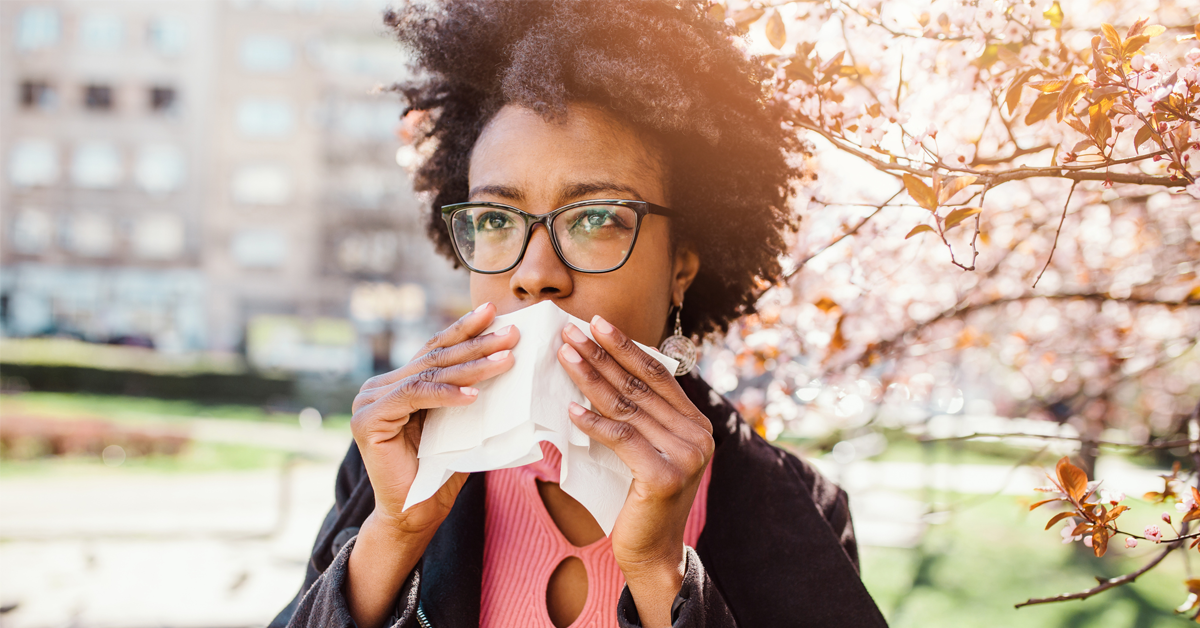
If you have seasonal allergies, you know the symptoms right away. Watery eyes. Itchy ears. Congestion. Headaches. And the sneezes. So, so many sneezes.
But it’s not just your airways, sinuses and nasal passages that are affected by seasonal allergy triggers. Your oral health is directly tied to these areas and can also suffer the effects of allergy symptoms.
Learn more about the different ways seasonal allergies affect your oral health and steps you can take to help reduce their impact.
Dry mouth
This is the most common oral health side effect of seasonal allergies. When we’re congested, our nasal passages make it hard to breath through our nose like we normally would, so we breathe through our mouth instead. This dries up our saliva, which is an important tool for preventing gum disease and tooth decay. When you lose that layer of protection in the mouth, your teeth and gums are prone to bacteria.
If you feel your allergy symptoms coming on, drink plenty of water or chew some sugar-free gum to generate saliva.
Swollen or red gums
Many people who suffer from seasonal allergies also contend with postnasal drip, which can cause a sore throat and swollen tonsils. When combined with the effects of congested mouth breathing, this can lead to red or swollen gums. When inflamed, gums are more sensitive, which may make it harder to brush and floss. And we frequently encourage flossing for good reason: it prevents the onset of gingivitis and gum disease.
How to reduce the effects of seasonal allergies
Seasonal allergies are hard to avoid, but there are steps you can take to reduce their impact on your airways and oral health:
- Check the weather report on TV or online to see what the pollen count is. If it is high, avoid outdoor activity early in the morning when counts are at their peak.
- Keep indoor air dry with dehumidifier to help reduce allergens in your home.
- While it may smell nice, avoid hanging laundry outside during allergy season. Pollen can stick to clothes and linens.
- Try to stay indoors on dry, windy days to reduce contact with allergy triggers.
- Use an over-the-counter remedy, like oral antihistamines and nasal sprays. (Make sure you loop in your health care provider to make sure you can take these safely.)
- Wear a mask outside if you are cutting grass or gardening during high pollen count days.
Sometimes, precautionary measures and home remedies aren’t enough to ease symptoms to a manageable level. In this case, your health care provider might recommend an allergy test to hone in on your symptoms or allergy shots to help reduce the immune system’s reaction to triggers over time.
The bottom line: Season allergies are a pain for millions of Americans and can affect our oral health. But by taking steps to avoid allergy triggers and reduce their impact, your smile will benefit just as much as your airways.
